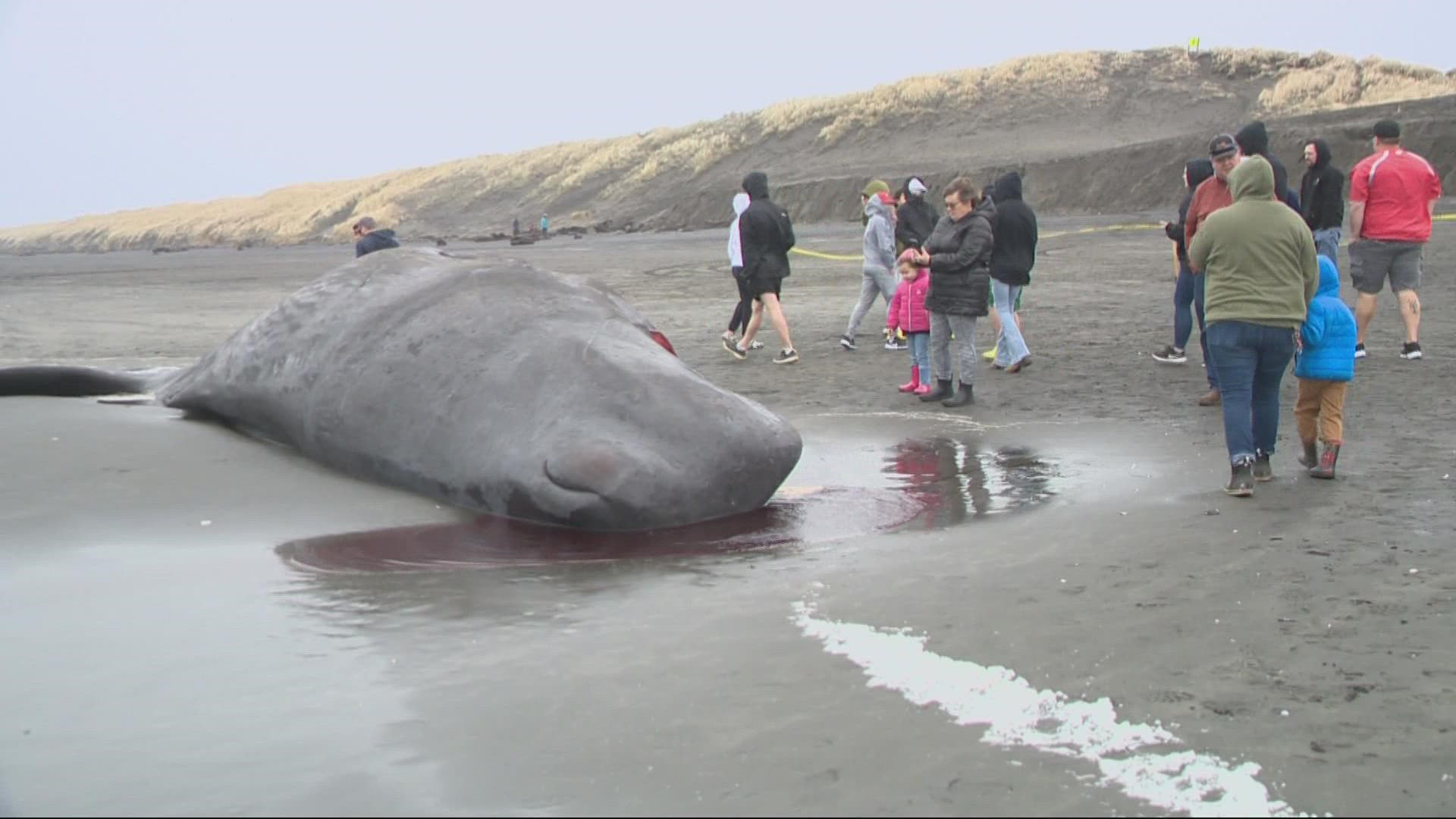WARRENTON, Ore — A dead whale washed ashore near Fort Stevens State Park along the northern Oregon coast Saturday afternoon.
The U.S. Coast Guard Pacific Northwest District received multiple reports of a beached whale in the surf on Saturday and contacted the National Oceanic and Atmospheric Administration (NOAA), which took the lead in responding.
Where was the beached whale found?
Michael Milstein with NOAA confirmed that the whale is dead and somewhat decomposed. It is located south of the Wreck of the Peter Iredale in Fort Stevens State Park.
What type of whale is it?
It was first reported as a humpback whale, which is common seeing as about a half dozen humpbacks wash up on the Oregon coast each year. Marine experts later determined it was a 40-foot-long male sperm whale that was about 20 years old.
"You can tell by its large jaw," said Tiffany Boothe, the assistant manager at Seaside Aquarium. "They have this really big mouth lined with a bunch of teeth; it has a very distinct look."
Milstein confirmed it was a sperm whale. Sperm whales are less common off Oregon and Washington in the winter, Milstein said, so the washup is unusual. The sperm whale has been listed as endangered under the Endangered Species Act since 1970.
What happens to the carcass?
What will become of the whale will be up to the Oregon State Parks Department, but given its size, it will likely be left to decompose in place.
A necropsy NOAA performed on Monday revealed the whale died from a ship strike based on bleeding found from large, visible wounds on the whale's body.
“This necropsy is an attempt to determine the cause of death for the whale as well as its health of the whale at the time that it died,” said Matt Burks, a spokesman for the NOAA.
On Sunday morning, the whale's lower jaw and teeth were removed, said Boothe with the Seaside Aquarium. The aquarium is part of the Marine Mammal Stranding Network, which responds to animals dead or alive along the Oregon coast and then report their findings to Portland State University.
"A lot of scientific value can come out of the lower jaw," Boothe said. "Unfortunately, there are people out there who will come and carve the teeth out, so it’s really important for us to get that whole jaw off as soon as we can."
What to know if you're going to see the whale
Marine experts encourage people to look but from afar.
"We ask people not to touch marine mammals," Boothe said. "They can carry diseases that can be transmitted to humans and pets, so it’s just a good idea, especially since we don’t know exactly what happened to the whale, to keep your distance."
Download the KGW News app: Download for iPhone here | Download for Android here
Stream newscasts for free on KGW+ on Roku and Amazon Fire: How to add app to your device here
See a typo in this article? Email web@kgw.com for corrections

